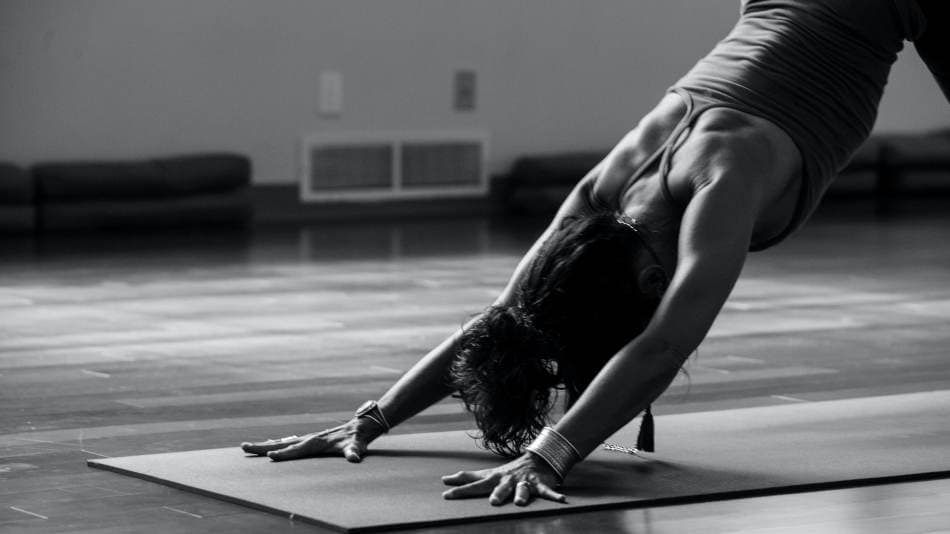Most actors are unemployed for long periods of time, and many people wonder what actors do between acting jobs.
When actors aren’t working on a film or TV show, they usually spend their time training, auditioning, networking and creating their own work in order to expand their opportunities, giving them a better chance of landing more acting jobs. Many actors struggle to make ends meet, so also work side jobs.
If you’re like me, you’ll find that the time between acting jobs feels like a boring retirement. At first, it’s okay, but after a while, it becomes boring and monotonous. If I’m not actively thinking about being productive, I’ll spend all day watching TV and turning into a slob. Which, take it from me, isn’t too good for your career.
So what can you do in order to be more productive in the awful times of unemployment? Whether you’re just curious, or you’re an actor looking to be more productive during unemployment, in this article I tell you what actors should be doing between jobs.
Table of Contents
Keep Training

Many actors believe that once they’ve graduated from Drama School, or have done a few years of classes, they never need to train again. But your acting ability is a muscle, and muscles need to be trained.
If you’re constantly working, then you’re training is through practice. But if you’re going through a dry spell, something all actors experience at some point in their careers, training can be a great way of staying in practice and growing as an actor.
Classes & Workshops
You don’t have to go back to Drama School, simply taking a class once a week or every now and again, can be a great idea, and as well as allowing you to practice, will also help you meet other actors.
Workshops are also great. If you’re interested in Screen Acting, Stage Combat, or any other acting skill. Taking a workshop can be a great way of expanding your knowledge of new techniques, skills and broadening your range.
Masterclasses
If you can’t go to a class in person for whatever reason, there are many online masterclasses made by absolute legends, that I’d highly recommend everyone watches.
Uta Hagens Acting Class
Uta Hagen was a very well respected acting teacher, and if you search online, you can find a video of her 3 hour class, where you get to see her teaching. Her methods are very well respected and expand upon those of Stanislavski. I’d highly recommend watching this class.
The Sanford Meisner Masterclass
Sanford Meisner is probably one of the most well known acting teachers of all time. His methods were known as a secret among the community. But over the last 20 years have grown worldwide.
As Meisner was getting older, his students wanted to ensure that his method would be preserved after his death. So Meisner filmed 70 hours of in-class footage. Most of this is locked away, but online you can find a condensed 8 hour version of the footage.
Meisners’ techniques, although hard to understand at first, can be very helpful to actors, in order to get out of their heads. Even Stanislavski himself came to agree with many of Meisners’ teachings.
Michael Caine – Acting In Film
Michael Caine, the legendary British actor, released a 1 hour workshop with the BBC, in which he teaches screen acting. This class is a wonderful dive into the technicalities of working with a camera and he gives some great advice that holds to this day.
At only 1 hour long, you can watch it pretty quickly, so you don’t really have an excuse! Give it a watch!
Practice Self-Taping & Audition Technique

Self-taping is the modern way of auditioning. It hasn’t fully replaced in-person auditions, although every actor needs to know how to produce a good self-tape. I’ve landed jobs from a singular self-tape, that’s how powerful they are.
Self-taping is definitely a skill that needs to be mastered. If you have the space, think about setting up a space just for your self-tapes, so you don’t have to set everything up each time. Ensure you have good lighting, good audio and good framing.
And even if you don’t have any auditions at the moment, do some self-tapes. Get a friend to help with queue lines, and treat it like a real audition. Do this as often as possible until you’re happy with your self-tapes. And if you don’t audition that often, practice anyway. Staying in practice will mean that when you do get that audition through, you won’t have to panic about it. Instead, you can focus on the actual audition.
Read As Much As You Can

Many people hate reading, and I can completely understand that. I loved reading as a kid, but school made me hate it. As I’ve been getting older though, I’ve begun to realise the importance and power of reading. It can expand your mind, keeping your brain from stagnating. And from an actors point of view, it can be great practice for people that aren’t very good at cold reading. (Like me!)
There are many books about acting, whether they be about technique or the industry. When I’m not working, I’ve found that reading not only helps expand my knowledge and grow confidence in myself, but it’s also extremely motivating and puts me in a positive and productive headspace.
Here are some of the best books I’ve read about acting that I think that you should try:
- Sanford Meisner on Acting – by Dennis Longwell
- Respect For Acting – by Uta Hagen
- A Challenge for the Actor – by Uta Hagen
- The Complete Stanislavsky Toolkit – by Bella Merlin
- The Golden Rules of Acting: That Nobody Ever Tells You – by Andy Nyman
- More Golden Rules of Acting: That Nobody Ever Tells You – by Andy Nyman
- Stella Adler: The Art of Acting – by Stella Adler
Give them all a read, and see what you think! And if you’ve read any of them before, or have any further suggestions of other books, let us know by commenting on this post!
Watch Plays, Films & TV Shows

Watching the newest shows and films can definitely get out of hand sometimes, but it can be great to relax and just appreciate the craft. Same as theatre, going out to watch a show with some actor friends is something that I love doing!
I’d say to use it as research. Of course, watch and appreciate the film while it’s on. But once it’s finished, find out the names of the actors in it, look at what they’ve been in. Who’s the Casting Director for the production, and what have they worked on before?
As you do this, you’ll begin to learn the names of professionals within the industry. As actors, it’s important that we know the Casting Directors that are working, as you’ll probably audition for them at some point in the future. So doing your research when watching films and shows is a great way of doing this.
It can also grow your confidence in the fact that you’re relevant within the industry, and know what you’re doing. And it can also help make you feel like you’re doing something productive, rather than waiting for the phone to ring.
Network With Other Actors & Professionals

I often hear people saying, “it’s not what you know, it’s who you know.” Well, in that case, put yourself out there and get to know people.
Casting Directors
After you begin to learn about the Casting Directors working in the industry, sending emails, briefly introducing yourself, can be incredibly powerful. And although they probably won’t reply, you can be sure they’ll read it. And getting a Casting Director to see your headshots, resume and showreel, is really something that can’t be understated. If they’re looking for someone just like you, that email could land you an audition.
Social Media
Similarly, social media can be great for networking. Although it can also be a slippery slope, so be careful. Balancing a healthy amount of social media use, putting yourself out there and engaging in conversations with creatives online is a great way to network.
I know actors and industry professionals that I’ve never met in person, but have had great conversations with online. Because of this, I know them and they know me.
Create Your Own Work

Often auditioning and getting constant rejection can be very hard. And sometimes we may go longer than usual without even getting an audition, never mind a rejection. So in these circumstances, how can we continue to act and build our credits?
I believe that modern actors should create their own work. Especially if you’re struggling to get your first roles. Whether it be as simple as filming a monologue and posting it online, or something bigger, like writing and producing a short film with other people you know. Creating your own work is very powerful. Creating your own work also gives you a perspective of other parts of the process.
And who knows, maybe it’ll develop into something bigger. An actor friend of mine has actually been very successful with writing. Selling scripts for multiple feature films. This means he doesn’t have to rely solely on the income from acting, it’s split between multiple sources.
If you don’t like writing, that’s fine. You can always find someone that does. Find a filmmaker or writer group online, and network with people. Maybe someone wants experience writing monologues. Collaboration is key!
Stay Fit & Healthy

Staying fit and healthy is very important for actors. You don’t have to look like Arnold. People come in all shapes and sizes. But getting enough sleep, and building stamina is something I believe everyone should do.
I wouldn’t consider myself unhealthy, but I’ve had times where I’ve seriously struggled doing long shoot days, one after another. And it inspired me to start thinking about my health a lot more.
You don’t want to land a big job and then realise that you physically can’t keep up with the demands of the job.
I also believe more than anything, that if you stay fit and healthy, you’ll be happier. You feel awake, alive. It gives you the energy to work towards your goals!
Have A Hobby That Isn’t Acting Related

One of the most important things that most people probably don’t think about is having a hobby that isn’t meant to make money. We’re actors, we want to make a living from acting, obviously. So sometimes that drives our decisions, and after long periods of time, it can be very tiring and discouraging. This is normal.
So having a hobby that isn’t meant to make money, a hobby that doesn’t work towards your acting career, a hobby that is 100%, only meant for fun. Means that you can actually relax. You don’t have to think of how the consequences of the decisions you make may affect your life, you don’t have to do the things that aren’t fun in order to do the things you enjoy.
Do you like fishing? Go fish! Do you like playing chess? Play chess! Do you like playing music? Do that! It doesn’t matter what it is, just resist the temptation to try making money from it, unless you want to have a career as a pro chess player and an actor. A side hobby is meant to allow you to relax, have fun and not worry about anything else at that moment.
Personally, I love playing the drums, as well as some other instruments. And although I may end up playing a character that plays the drums, and I may end up releasing music at some point, my intention is to keep it as a way to let go.
Acting is my career because I love it so much that I want to do it every day, I want to work on great productions meeting great people. So to do that, I have to make money from it. Whereas music is what I do when I come away from the set. When I need to stop thinking.
Get a side hobby!
Spend Time With Friends & Family

This may seem like a given, but I know for myself, I often take it for granted. Having a great support system around you is extremely important, so when you’re not working spend time with your friends and family!
I mean, an actors job is to live realistically under imaginary circumstances, right? So how can you do that when you’ve never truly lived? So go live! Experience life, and all the great (and ugly) things that come with it.
If all you’re thinking about is acting, you’re going to burn out. Trust me!! Seriously… Trust me! I’ve done it time and time again, and I’m still making the mistake. Create a meaningful balance in your life, that you can maintain for your lifetime.
The grind, grind, grind lifestyle has become so popular in recent years. But ultimately, it’s not sustainable unless you have that balance between work and life.
And That’s It!
These are the things I think every actor should be doing between acting jobs. If you do all these things, you’ll be on the right track to having a successful career. And more importantly, you’ll be happy. Remember to stop and appreciate how far you’ve come, even at the start of your journey.
And if you have anything that you think actors should be doing between jobs, let me know in the comment section! We’d love to hear what you have to say. Especially if it could help other actors!







